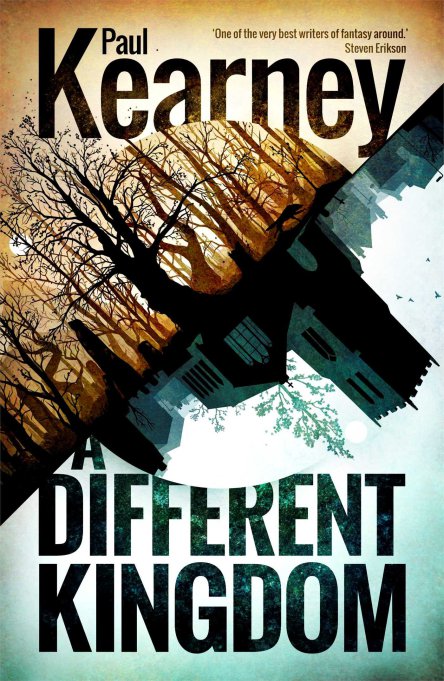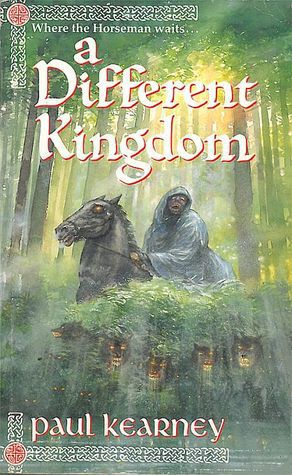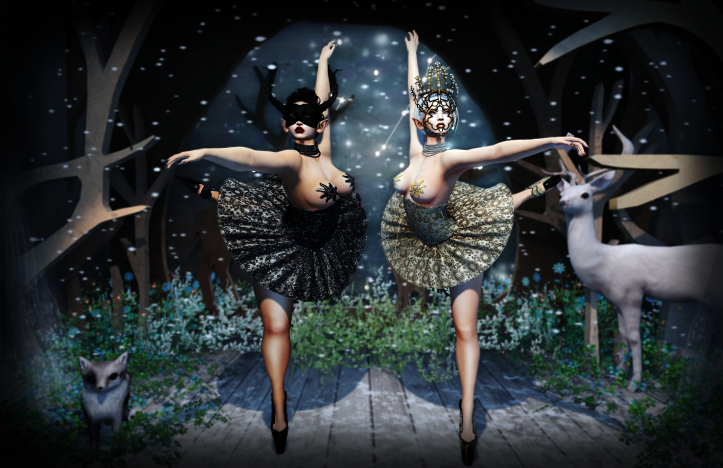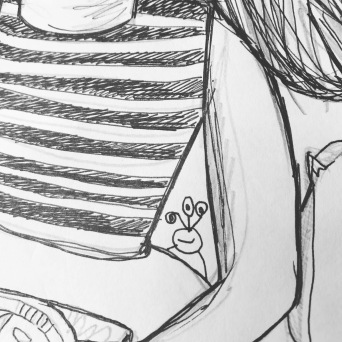After enjoying Paul Kearney’s 2016 Oxford-based tale ‘The Wolf in the Attic’, I sought out this earlier work by him. ‘A Different Kingdom’ was first published in 1993, and republished by Solaris in 2014. It tells the story of Michael, a young boy growing up on a rural farm in County Antrim, Northern Ireland. In the woods near the farm, Michael begins to witness things he can’t explain. Are there strange creatures living in the woods, or does Michael just have an overactive imagination?
‘It is a last breathing space, a final look around at the soon-to-be-felled woods, the rush-choked bottom meadows, the fields with the wild flowers that have seeded for a thousand years and which knew the feet of the Druids.’ (Loc 118)
This is a fairly dark fairy tale which includes some of the standard tropes found in many fantasy stories: a young “hero” sets out on a quest to find a lost family member, he travels through a strange land, and is both helped and hindered by the characters he meets on his journey. He must stay ahead of the dark forces pursuing him, leading to a final confrontation with the “villain” of the book. What separates ‘A Different Kingdom’ from other, similar stories is Paul Kearney’s writing.

Like ‘The Wolf in the Attic’, ‘A Different Kingdom’ showcases Kearney’s lyrical prose. His descriptions of the wild paint a tangible picture of the world his characters inhabit. At times it was dark and grim, at other times bright and hopeful. The writing verges on being poetic at times, but is also earthy and real. The sights, sounds, and scents of the woods left a deep impression on me. It should also be noted that this book doesn’t shy away from depictions of sex and violence, which I felt Kearney handled well.
‘The Earth slowed, wound down to a darker season. In the hedges, be-dewed spiders’ webs swayed and swung like strung pearls, and the early light caught them in a dance of linked gems.’ (Loc 2396)
During the first few chapters, the author shifts the narrative through time without feeling the need to include pointers or explanations. This could initially confuse readers, but it quickly becomes clear when and where the characters are as you read on. I liked this narrative choice by Kearney. It was refreshing to simply surrender to the story and let it take me when and where it would, trust that all would become clear, as it did.

Michael is an engaging and solid leading character. The way he changes from a naïve young boy to a seasoned survivor is deftly penned by Kearney. We follow him on his strange journey of discovery, sometimes moving through time and place as the author gives us glimpses of an older, more jaded man. These temporal shifts kept my curiosity piqued and keen to read on. I also enjoyed the fact that Kearney doesn’t shy from showing us his character’s flaws. Michael goes through some harrowing experiences which have a lasting effect on his physical and mental condition. He is a scarred man, and all the more realistic for it.
‘He had become soft – a big, soft man with full red cheeks and too much flesh under his chin. A paunch ahead of its time, and a heart gone to seed along with his smoke-stained lungs.’ (Loc 3161)
The narrative builds to a truly tense and thrilling climax, and there are a few surprises in there, too. I wasn’t sure how it was going to turn out. Kearney kept me guessing until the end and I felt very satisfied by the conclusion.
Recommended for fans of adult fairy tales or fantasy, descriptive nature writing laced with some grim-darkness.
Advertisements Share this:





